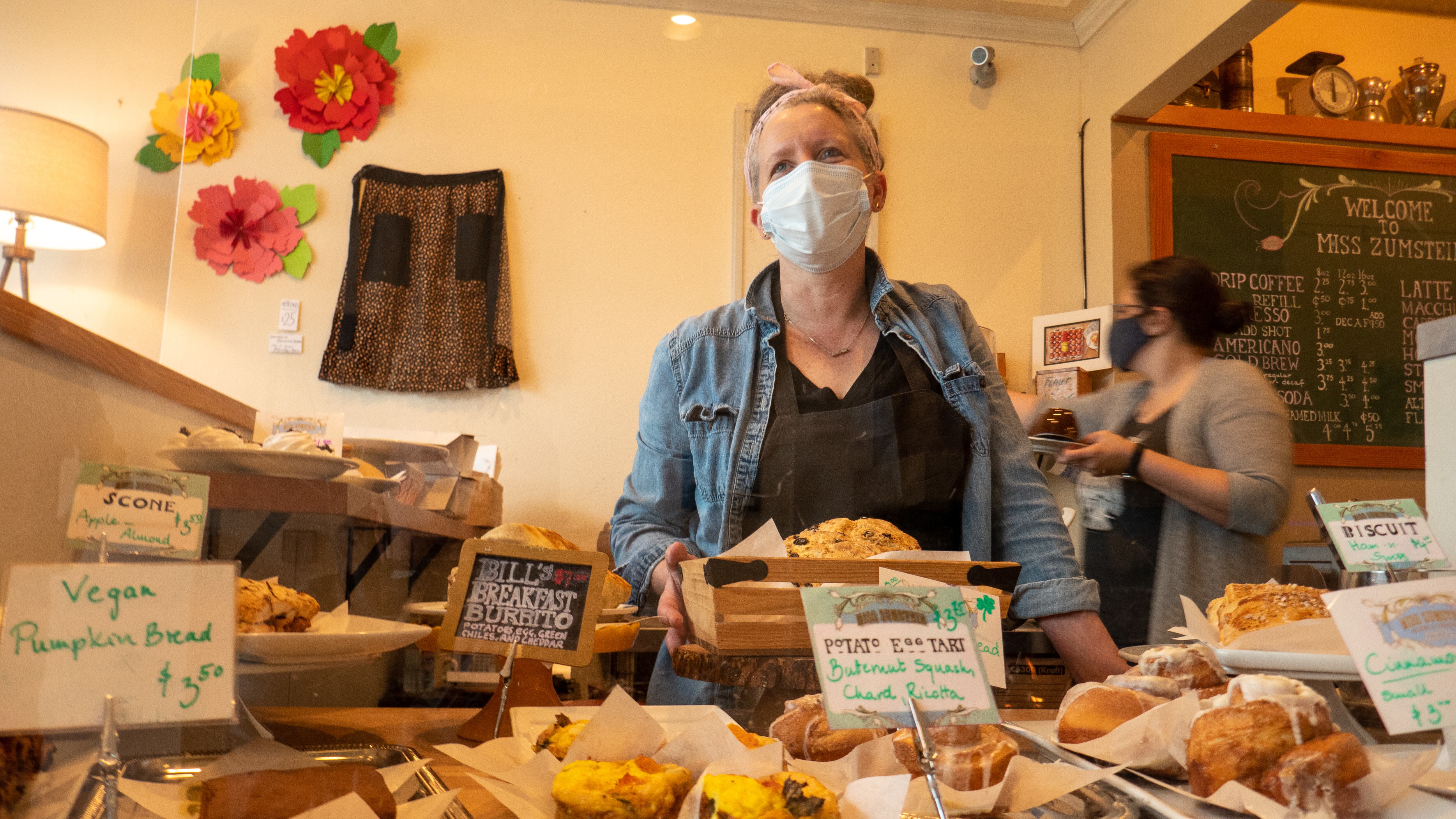More than half of Oregon seniors have been vaccinated for COVID-19, and state health officials expect to reach an 80% vaccination rate for people over 65 by the month's end.
That projection was one of several numbers released by the Oregon Health Authority this morning as the state explained how it expects to meet its pledge to make vaccines available to all Oregonians ages 16 and older by May 1.
The vaccine rollout for seniors has been marred by widespread confusion and well-documented snafus. Yet nearly two-thirds of Oregonians age 75 and older have now been vaccinated, OHA reports, along with more than 50% of people between the ages of 65 and 75. In total, 57.8% of seniors are fully vaccinated.
That rate of shots into arms will allow Gov. Kate Brown to move up the dates when other prioritized groups can get vaccinated.
"The Oregon Health Authority tells me that, provided supplies come in from the federal government as anticipated, we expect to have enough doses for every Oregonian who wants a vaccine to have the opportunity for at least a first dose by the end of May," Brown said in a Friday press conference. "That makes me smile. I hope it does for you too."
Starting March 29, people over 45 with an underlying health condition, farm and food processing workers, and homeless people or those displaced by wildfires can receive vaccines. On April 19, any adult with an underlying condition is eligible, along with all frontline workers. (One change Brown hasn't made: advancing grocery workers in the vaccine line.)
That staggered release of vaccines—making people eligible in groups of roughly half a million people every three weeks—will allow the state to distribute the federal supply of vaccine doses to mass vaccination sites, hospitals, health clinics and pharmacies.
The state believes that will create manageable surges in demand that can be rapidly matched by the supply, and will mean that by the time all adults are eligible May 1, much of the state will already be vaccinated.
Related: COVID-19 vaccines are in short supply in Oregon. That could change over the next six weeks.
In her remarks, Brown placed emphasis on racial equity in vaccine distribution, and said that commitment would need to continue even after all state residents became eligible. The governor, who has faced intense criticism for not moving up vaccinations for grocery workers, argued that giving priority to people with underlying conditions would achieve a similar purpose.
"We look forward to starting vaccinations for Oregonians with underlying health conditions," Brown said. "Not only will this next phase reach vulnerable people, but it also prioritizes equity as communities of color are most likely to have several of these health conditions, such as diabetes or sickle cell disease."
